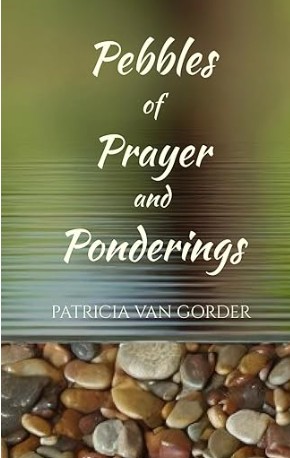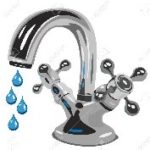Order on Amazon.com

Excerpts …
My soul waits for the Lord. More than those who watch for the morning. Psalm 130:6 (NASB)
I was a poor patient. I had open heart surgery, and I knew the healing process would take some time. But I didn’t realize how long!
Initially I was hopeful, but as the weeks went by, I became an impatient patient! I exhausted the means of distractions that I had originally engaged in while appreciating the free time to sit and heal. But I was tired of reading, emails and internet; time to start moving. I felt like I was creeping up an endless flight of stairs, and I wanted an elevator!
William Ullathorne writes; ‘Trials of mind affect us more deeply than pains of body, and if we give in to anxiety, such trials  become troubles, and are immensely increased.”
become troubles, and are immensely increased.”
He’s right. The soul that rests in calm endurance experiences healing, which in turn increases the ability of the body to heal. I needed reminded that I had entrusted myself into God’s care, and was now doubting. I had looked away.
We can be such fragile and weak children. Only Our Father, in His powerful love, can look with compassion on our feebleness. In due time, He will guide us back, showing us the blessedness of waiting on Him, and not on ourselves or our bodies.
For if Christ be born within,
Soon that likeness shall appear
Which the soul had lost through sin.
God’s own image fair and clear,
And the soul serene and bright
Mirror back His heavenly light. Laurentius Laurenti
_______________________
I know all the things you do, that you are neither hot nor cold. I wish that you were one or the other! But since you are like lukewarm water, neither hot nor cold, I will spit you out of My mouth! Revelation 3:15-16 (NLT)
 These words are written to the church in Laodicea; a fairly wealthy banking center and a textile town. The Laodicea’s understood the analogy between hot and cold water because their city drinking water came from a spring six miles to the south over an aqueduct, and it arrived disgustingly lukewarm. It was not hot like the nearby hot springs that people bathed in, nor was it refreshingly cold for drinking. It was lukewarm, good for nothing. And they didn’t have ice cubes!
These words are written to the church in Laodicea; a fairly wealthy banking center and a textile town. The Laodicea’s understood the analogy between hot and cold water because their city drinking water came from a spring six miles to the south over an aqueduct, and it arrived disgustingly lukewarm. It was not hot like the nearby hot springs that people bathed in, nor was it refreshingly cold for drinking. It was lukewarm, good for nothing. And they didn’t have ice cubes!
Lukewarm is comfortable Christianity. One who is neither spiritually on fire for God; nor cold, rejecting Him altogether. It is one who feels secure because they attend church, were baptized, and come from a Christian family. One who gives money to charity and the church as long as fits into the budget.
A comfortable Christian can look good on the outside, but God knows a hot or cold heart. “Hypocrites! For you are like whitewashed tombs which on the outside appear beautiful, but inside they are full of dead men’s bones and all uncleanness” (Matthew 23:27). (NASB)
These are convicting words! But a compassionate Christ goes on to say, “I correct and discipline everyone I love; so be diligent and turn from your indifference” (Revelation 3:19). (NASB)
Even though Laodicea was lukewarm at this time Jesus says that He still loves them; that is why He rebukes them. And He gives them counsel to turn away from their lukewarm lifestyle.
We stand at the sink and can turn on the hot or cold water. Combined, we get lukewarm. Which faucet will we turn on? Combined and comfortable? Hot or cold?
_______________________
Do you not know? Have you not heard? The Everlasting God, the Lord, the Creator of the ends of the earth does not become weary or tired. His understanding is inscrutable. He gives strength to the weary, and to him who lacks might He increases power. Though youths grow weary and tired, and vigorous young men stumble badly, yet those who wait for the Lord will gain new strength; they will mount up with wings like eagles, they will run and not get tired, they will walk and not become weary. Isaiah 40:28-31 (NASB)
One chore I particularly disliked while growing up on the farm was pulling milkweeds. My sisters and I would spread out and head down the couple acres of alfalfa pulling the pesky weed. After going a short distance and looking behind me, they seemed to be growing as fast as I could pull them! It was discouraging.
Problems are like that. They keep cropping up. When one is resolved, we know there will be more. We will never be free of problems.
Must we plod wearily along believing there is no escape from the burdens? No! We can mount up with wings like eagles if we wait on the Lord instead of trying to solve the problem by ourselves.
The eagle represents freedom. He lives on lofty mountaintops and in the solitary grandeur of nature. He sweeps into valleys below and upward into boundless spaces. He uses thermals, rising currents of warm air, to help him soar. So he needs very little wing-flapping, enabling him to conserve energy. Oh, that we would soar like the eagle and allow God to take care of the wearisome problems that disturb us. Test your wings.
Help me to rise above the problems, Lord. I want to soar!
_______________________
God said to him, “You fool! You will die this very night. Then who will get everything you worked for?” Luke 12:20 (NIV)
Cherry picking time! When growing up, my sisters and I sat around the kitchen table and spent hours pitting cherries. We used bobby pins to dig out the stubborn pits while messy red juice ran down our arms. It was a tiring and seemingly endless job. But it was necessary for us to make provisions for the winter to fill the root cellar that would feed our large family.
 It is necessary to make provisions. We are obligated to provide for our families and ourselves. But in this reading Jesus refers to excess as greed. In the parable Jesus tells of a man of wealth who didn’t know what to do with all his possessions. He reasoned that he would tear down his barns and build bigger ones. He was proud of all he had achieved and certain that he had many years left to enjoy all he had acquired. He would take it easy—eat, drink, and be merry. Jesus called him a fool, storing up riches for himself but not rich toward God.
It is necessary to make provisions. We are obligated to provide for our families and ourselves. But in this reading Jesus refers to excess as greed. In the parable Jesus tells of a man of wealth who didn’t know what to do with all his possessions. He reasoned that he would tear down his barns and build bigger ones. He was proud of all he had achieved and certain that he had many years left to enjoy all he had acquired. He would take it easy—eat, drink, and be merry. Jesus called him a fool, storing up riches for himself but not rich toward God.
There is a big difference between filling a dirt cellar with winter provisions and the barns referred to in today’s reading. If the man had too much, why didn’t he share a portion with those in need? Greed? Jesus tells us, “Beware, and be on your guard against every form of greed; for not even when one has an abundance does his life consist of his possessions” (Luke 12:15).
Lord, make me a frugal, not possessive, servant.
_______________________
I will refresh the weary and satisfy the faint. Jeremiah 31:25 (NIV)
I’m sitting in the waiting room for an early morning doctor appointment. A young woman rushes in, and slips into her desk behind the check-in counter. Her co-
worker asks, “How are you today?” “I’m tired,” she sighs.
I feel bad for her and ask God to help her through her day.
“I’m tired,” is a mantra for many. Why wouldn’t we be tired? Slumping along under the weight of unpaid bills, rebellious children, stuck in a job that’s going nowhere, unresolved health issues; the list goes on. Sleepless nights offer no answers; no peace.
I think of Jesus, the times He must have been sleep deprived and exhausted. The demands on Him came from every direction. Crowds followed Him everywhere.
The Bible tells us that Jesus prayed often – sometimes before daybreak, but always a place alone with His Father.
No matter how weary or stressed we are, we can pray. We may not be able to find the secluded place we long for, but we can pray.
We can keep it simple with an arrow prayer. “Lord, I am tired! Please help me through this day.” It takes discipline, but it shows results. Prayer changes things. Prayer changes us!
Jesus promises He will refresh and satisfy us. We can face each day with Him through prayer. Why wouldn’t we try it?
The cartoon character, Dennis the Menace asked his neighbor, Mr. Wilson, “When you can’t sleep, do you count sheep?” Mr. Wilson replied, “No, I talk to the Shepherd.”
Truly my soul finds rest in God; my salvation comes from Him. (Psalm 62:1) (NIV)
_______________________
When Joseph’s brothers saw him coming, they recognized him in the distance. As he approached, they made plans to kill him. Genesis 37: 18 (NLT)
For me, besides the words “Forgive them Father,” from our Suffering Savior, Joseph’s forgiveness of His brothers is probably the most compelling example of forgiveness in the Bible.
 His ten older brothers hated him because he was their father’s favorite. They conspired to get rid of him, and sold him into slavery for 20 shekels of silver. He was carted off to Egypt.
His ten older brothers hated him because he was their father’s favorite. They conspired to get rid of him, and sold him into slavery for 20 shekels of silver. He was carted off to Egypt.
There he became a servant, accused of rape and thrown into prison. The king had a very disturbing dream, and Joseph’s guards told the king that Joseph could interpret it for him. When he did, he was made ruler of Egypt, second only to the king.
Famine became catastrophic over the earth, and Joseph’s brothers were sent by their father to Egypt to buy grain.
When the brothers realized who Joseph was, they feared for their lives. Surely He would retaliate! “Don’t grieve or be angry with yourselves because you sold me,” he told them. “God sent me before you to preserve life. God has made me lord of all Egypt.
Go, bring our father here, and I will provide for all of you and your children.” Moreover he kissed all his brothers and wept over them, and after that his brothers talked with him. (Genesis 45:4, 7). (NKJV)
Did they beg forgiveness; try to explain why they had done it? All we know is- they talked.
Webster defines forgiveness as to absolve, to cease resentment and to give up all claim. These action words require a decision.
Joseph forgave, and was blessed to be with his father Jacob, when he died. Joseph lived out his life in peace.
Can we say, “Forgive them, Father?”